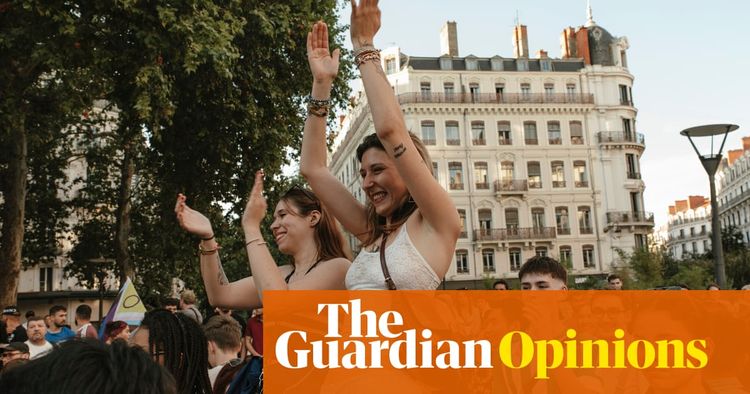The Guardian view on the French election: time to build a republican future | Editorial

Faced with a major challenge, France's political parties joined forces and successfully defended their positions. Over 200 candidates from the left and center decided to step aside in order to give stronger opponents a better chance of defeating Marine Le Pen's radical right party in the second round of legislative elections. This decision paid off unexpectedly well, as Le Pen's National Rally party fell to third place after initially appearing to have a shot at winning a majority.
In a time when rightwing nationalism is on the rise and trust in mainstream politics is decreasing, it is worth celebrating the recent outcome. Emmanuel Macron's risky election allowed RN to significantly increase its number of MPs. However, a large voter turnout across France resulted in millions of voters setting aside their differences to unite against RN. They came together to oppose a party that goes against the values of equality and inclusion. The RN's controversial plans to exclude dual nationals from certain state positions turned out to be a political setback, rather than an advantage. Additionally, the exposure of racist views and pro-Putin sympathies of some candidates on social media caused widespread disgust.
What comes next is not easy to predict. A final attempt to resist has created a parliament split into three main groups with no clear path to a strong majority. Another unexpected result was the New Popular Front (NPF) coming in first place, a coalition formed quickly by the left. However, in order to govern, the NPF will require the backing of many of Mr. Macron's Renaissance MPs. They may be unwilling to work with the radical left led by Jean-Luc Mélenchon.
On his side, Mr Macron might still want to form a moderate government, possibly including the revitalized center-left socialists and the center-right Républicains. However, since his own parliamentary coalition lost around a third of its seats and came in second, the president doesn't have much power. There will likely be weeks, or even months, of negotiations ahead as the current prime minister, Gabriel Attal, remains in a temporary role.
The situation is not good and is in chaos, and the president is to blame for it. If nothing is done politically, it will only benefit Ms. Le Pen as she aims for the presidency in the 2027 election. If the ongoing dissatisfaction and anger over worsening living conditions, particularly in poorer areas, are not addressed, more and more disillusioned citizens may start supporting her.
In this context, and with a humble attitude after the chaos he caused, Mr Macron should pay attention to the results and allow the center-left, who barely won, to lead the way in politics. Throughout the campaign, figures like Marine Tondelier, the Green party leader who gained recognition in a former mining town and RN stronghold, showed potential as a progressive alternative to Ms Le Pen. The NPF's program also pointed towards a proactive approach in combating the radical right. Prioritizing increased funding for healthcare and education, for instance, should now become a central topic of discussion nationally.
The conservative party remained strong. However, as times become more unpredictable, the traditional French political parties cannot continue to depend on it as a last resort.
Would you like to share your thoughts on the topics discussed in this post? If you want to send a response of no more than 300 words via email for the chance to have it featured in our letters section, please click on the following link.

















































